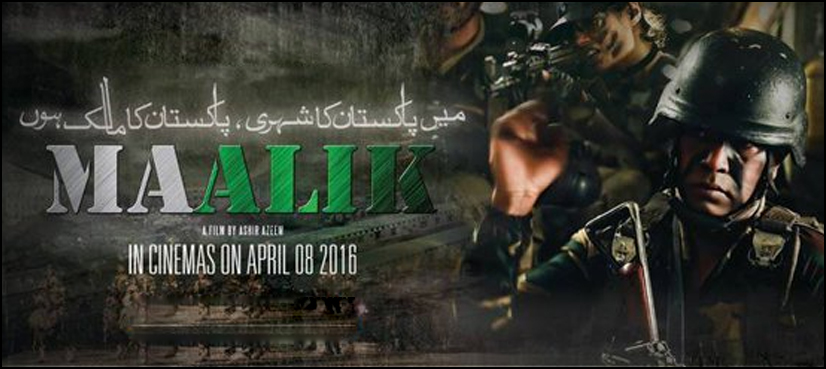 Canadian director Ashir Azeem’s new film ‘Maalik’ is being met with great controversy as many are asking what is going on with this film. Why is ISPR making movies? What is this narrative we are pushing? Who is paying for this?
Canadian director Ashir Azeem’s new film ‘Maalik’ is being met with great controversy as many are asking what is going on with this film. Why is ISPR making movies? What is this narrative we are pushing? Who is paying for this?
Supporters of these films will quickly point out that if Hollywood works with the American military what is wrong with Pakistan military helping make authentic war films. The answer is that there is nothing wrong with the Army consulting on films to help make sure they are authentic. The problem comes when the Army goes from advising on authenticity to controlling the strings and using films as pro-war propaganda. This is a problem that even Americans question, so why can’t we question it also?
However there is also a big difference between the relationship between American and Pakistani military films which is that in America the movie producers pay the military for their help.
“The rule of thumb for us is that there’s no additional cost to the US government,” says Strub. “So if they’re filming typical flight operations on an aircraft carrier, we wouldn’t charge. But if you wanted to control the aircraft, then we would charge exactly what it costs the squadron.” These costs vary: from $1,000 an hour for a tank, to more than $25,000 for an F-15 jet fighter.
Who paid for all of the soldiers and equipment used in Maalik? Did this come from the military budget? If so, why is Army spending so much making movies when it is also once again demanding that it does not have enough funds? How do movies help the defense of the realm?
There is also the issue that the film is enflaming ethnic divisions by projecting certain ethnicities as corrupt, some as target killers, and others as ‘saviours’. This becomes obvious as the ‘heroes’ of the story are Punjabi and the ‘villains’ are Sindhi. Is it coincidence that this film is released while Rangers are conducting Karachi operation?
Privately, some analysts are also expressing concern that the rise of Mumtaz Qadri phenomenon is being driven from certain quarters who are trying to counter the influence of out of control Deobandi groups by building up Barelvi groups as an alternative. However, this clever game is having the result of militantising Barelvis and creating a society that is quickly becoming even more radicalised, not less.
The biggest question, though, is why the military is being involved in making action films while the nation faces serious threats from enemies within and without. There is also a growing feeling of unease with the problematic narrative that is being promoted as can be seen from reactions on social media. This is the obvious point that those behind such efforts are missing. ‘Maalik’ is actually dividing the country, not uniting it. The military has a critical role to play in defence of the country. Making poorly-conceived action movies is not part of it.
![]()





